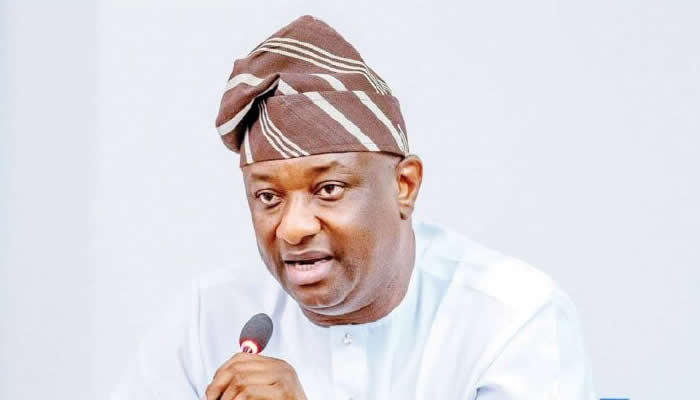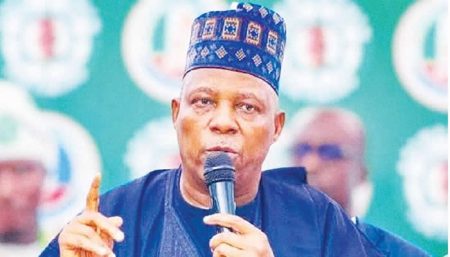The recent application for the registration of a new political party, the All Democratic Alliance (ADA), has ignited a wave of political commentary, particularly from the ruling All Progressives Congress (APC). Festus Keyamo, Minister of Aviation and Aerospace Development, has vehemently dismissed the ADA’s formation, characterizing it as a feeble attempt to replicate the successful 2013 coalition that birthed the APC. Keyamo, in a series of dismissive statements, argues that the ADA lacks the substance and gravitas of a true coalition, labeling it a “pedestrian joke” and “a complete mockery” of the APC’s foundational alliance. He contends that the ADA is merely a collection of individuals seeking registration, not a genuine coalition of established political parties. Keyamo’s pronouncements underscore the perceived threat the ADA poses to the APC, particularly as the 2027 elections draw nearer.
The proposed ADA comprises prominent political figures, including former Vice President Atiku Abubakar, former Kaduna State Governor Nasir El-Rufai, and former Rivers State Governor Rotimi Amaechi. These individuals, all with significant political clout, have fuelled speculation about the potential impact of the ADA on the existing political landscape. Keyamo, however, downplays their involvement, asserting that the ADA’s formation is more about generating hype than forging a genuine political force. He argues that the media attention surrounding the ADA is a calculated strategy to create an illusion of widespread support, a “psychological warfare” aimed at influencing public perception. Keyamo insists that the ADA’s registration application is no different from any other group of citizens seeking to form a political party, and its significance has been artificially inflated.
Keyamo’s critique centers on the distinction between a genuine political coalition and a mere collection of individuals seeking to register a party. He argues that the 2013 alliance that formed the APC was a seismic event, a convergence of major political parties with established structures and support bases, united by a shared vision for change. The ADA, in contrast, lacks this foundational strength, being driven by individuals rather than established political entities. Keyamo emphasizes that no officially recognized political parties are involved in the ADA’s formation, rendering it a private initiative rather than a true coalition. He dismisses the “pomp and pageantry” surrounding the ADA’s announcement, attributing it to a deliberate attempt to create a false impression of significance.
The formation of the ADA unfolds against the backdrop of Nigeria’s dynamic political landscape, characterized by shifting alliances and evolving power dynamics. The 2023 elections saw significant realignments, with the emergence of new political forces and the reshaping of existing ones. The ADA’s emergence represents another potential shift, adding a new dimension to the political equation. Keyamo’s dismissive remarks, however, suggest that the ruling APC views the ADA as more of a nuisance than a genuine threat. His statements reflect the APC’s confidence in its own position and its perception of the ADA as a weak and insignificant player.
The debate over the ADA’s significance highlights the importance of political coalitions in Nigeria. The APC’s own success story, born from a coalition of diverse political forces, underscores the potential power of such alliances. Keyamo’s critique of the ADA, however, raises questions about the authenticity and effectiveness of coalitions, particularly those perceived as lacking a genuine shared vision and strong foundational support. The ADA’s future trajectory will depend on its ability to consolidate its support base, articulate a compelling political agenda, and navigate the complex political terrain. Whether it can truly emulate the success of the APC remains to be seen.
Keyamo’s pronouncements serve as a stark reminder of the challenges faced by nascent political entities in Nigeria’s competitive political arena. The ADA’s ability to overcome Keyamo’s criticisms and establish itself as a viable political force will depend on its ability to build a robust organizational structure, forge genuine alliances with other political actors, and resonate with the electorate. The coming years will reveal whether the ADA is indeed a “pedestrian joke” or a genuine political force capable of disrupting the existing power dynamics. The political landscape in Nigeria is ever-evolving, and the ADA’s journey will be a crucial test of the viability of new political formations in the country.














